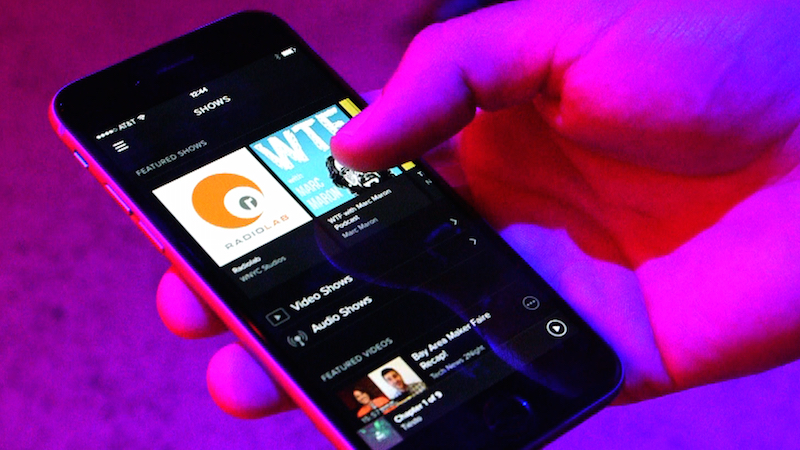Spotify has acquired the Brooklyn-based blockchain startup Mediachain Labs, whose team will join the company’s office in New York where they will work on developing better technology for connecting artists and other rights holders with the tracks hosted on Spotify’s service. Prior to its acquisition, the startup had developed several technologies that could aid in these efforts, including a decentralized, peer-to-peer database to connect applications with media and the information about it, as well as an attribution engine for creators, and a cryptocurrency that rewards creators for their work.
In short, the startup was working to leverage blockchain technology in order to help solve problems with attribution.
This is an area where Spotify can use some help, as it turns out. Last year, Spotify settled a licensing dispute with the National Music Publishers Association (NMPA) in the U.S. over unpaid royalties.
According to the NMPA, Spotify had failed to obtain mechanical licenses – which refer to a copyright holder’s control over the ability to reproduce a musical work – for a large number of songs on its service, The New York Times had reported. The issue could impact other streaming services as well, the NMPA said, estimating that as much of 25 percent of the activity on streaming platforms is today unlicensed.
Spotify at the time agreed to pay over $20 million to music publishers as a result of this settlement, in addition to a $5 million penalty. While the company likely avoided several class action lawsuits as a result of the settlement, it spoke to a larger problem in the industry.
Spotify had claimed that it didn’t pay out the royalties because it simply didn’t have the necessary data to help it figure out whose claims were legitimate, or even how to locate the parties. It said it lacked an authoritative database that covered all existing music rights. This opens it up to litigation, which is obviously not the ideal way of managing these payments.

With Mediachain, Spotify potentially has a solution on its hands – but instead of building out a centralized database with music rights information, it looks like it will build a decentralized one.
As Mediachain explains in a blog post, its vision for the problem with attribution is a shared data layer, which is says “is key to solving attribution, empowering creators and rights owners, and enabling a more efficient and sustainable model for creativity online.”
It also helps that the team at Mediachain has music industry experience. The company noted in the post that its CTO Arkadiy Kukarkin was the first engineering hire at the music curation aggregator Hype Machine, and before starting Mediachain Labs, co-founder Jesse Walden had co-founded and run an artist management firm that worked with artists including Solange Knowles, Blood Orange and Majical Cloudz.
Mediachain says it will turn over the technology it had already built to the open source community as it moves to Spotify.
Deal terms were not revealed, but Mediachain had raised $1.5 million according to CrunchBase, from investors including Andreessen Horowitz, Union Square Ventures, and others.































Comment